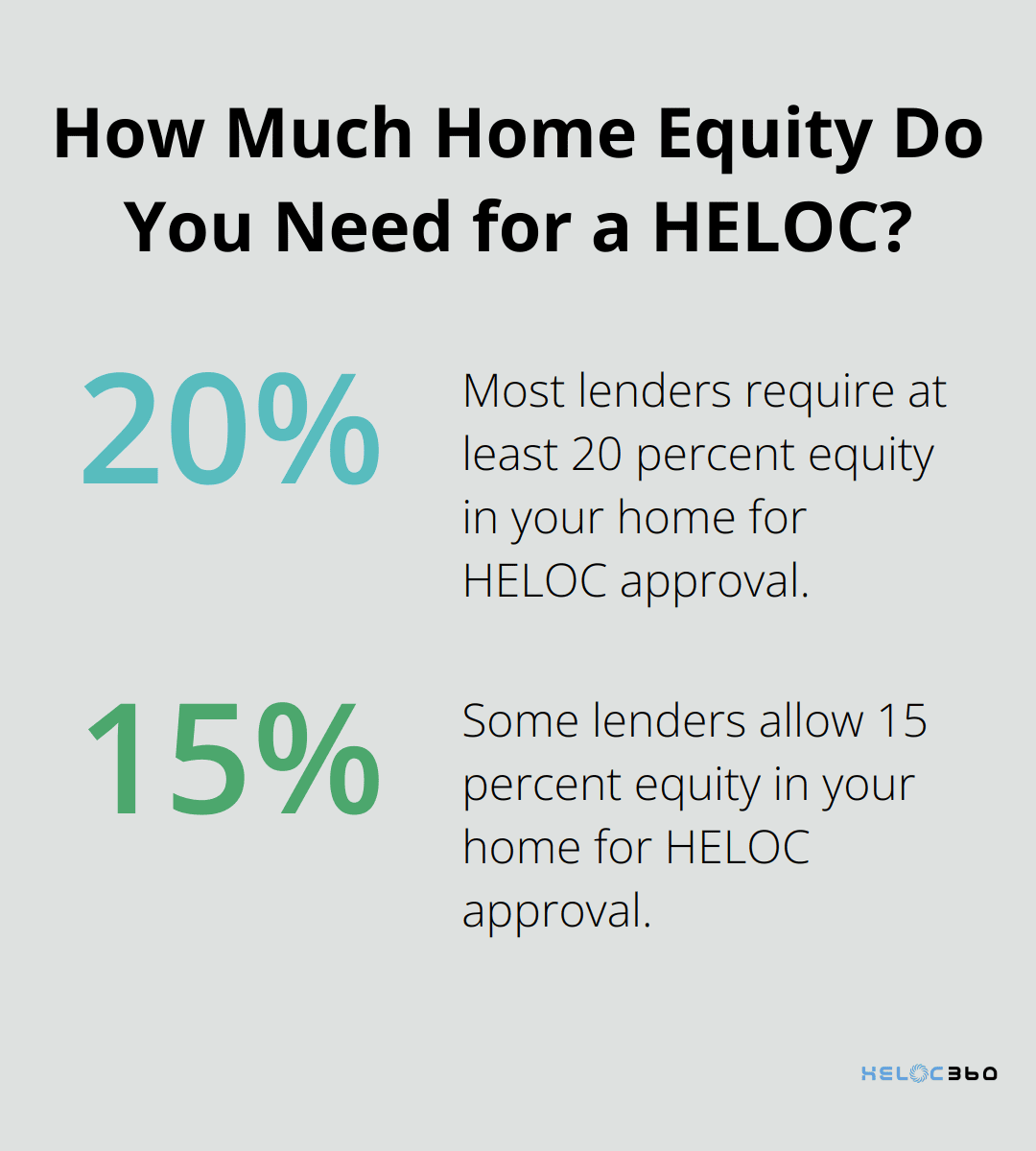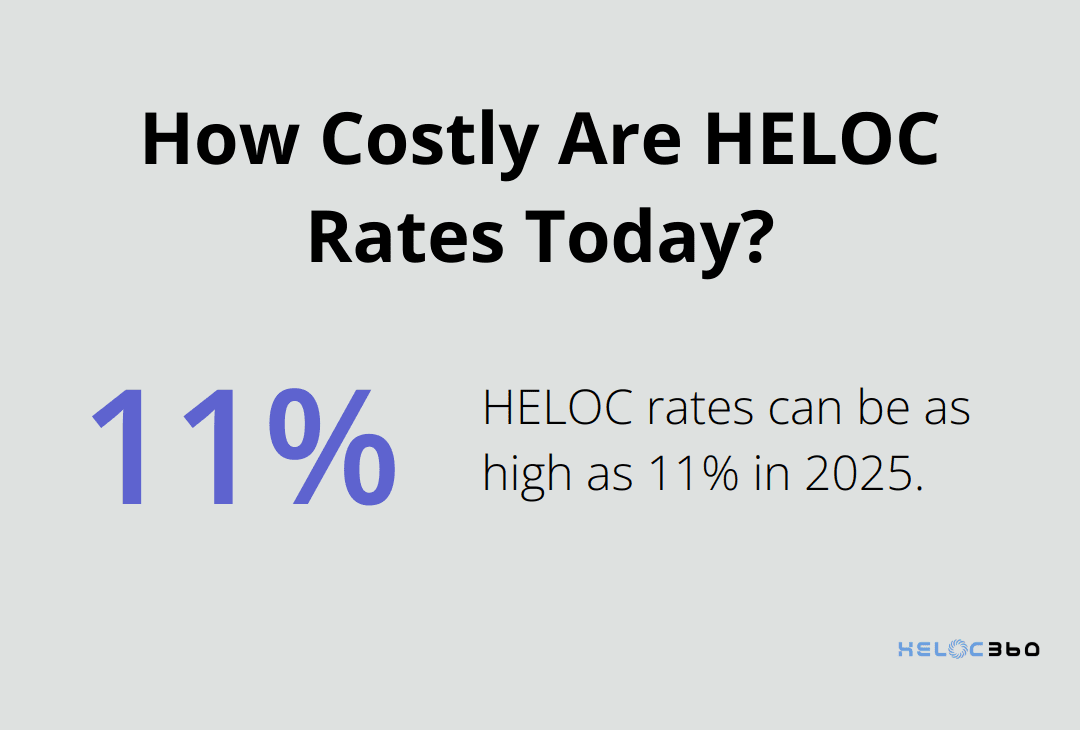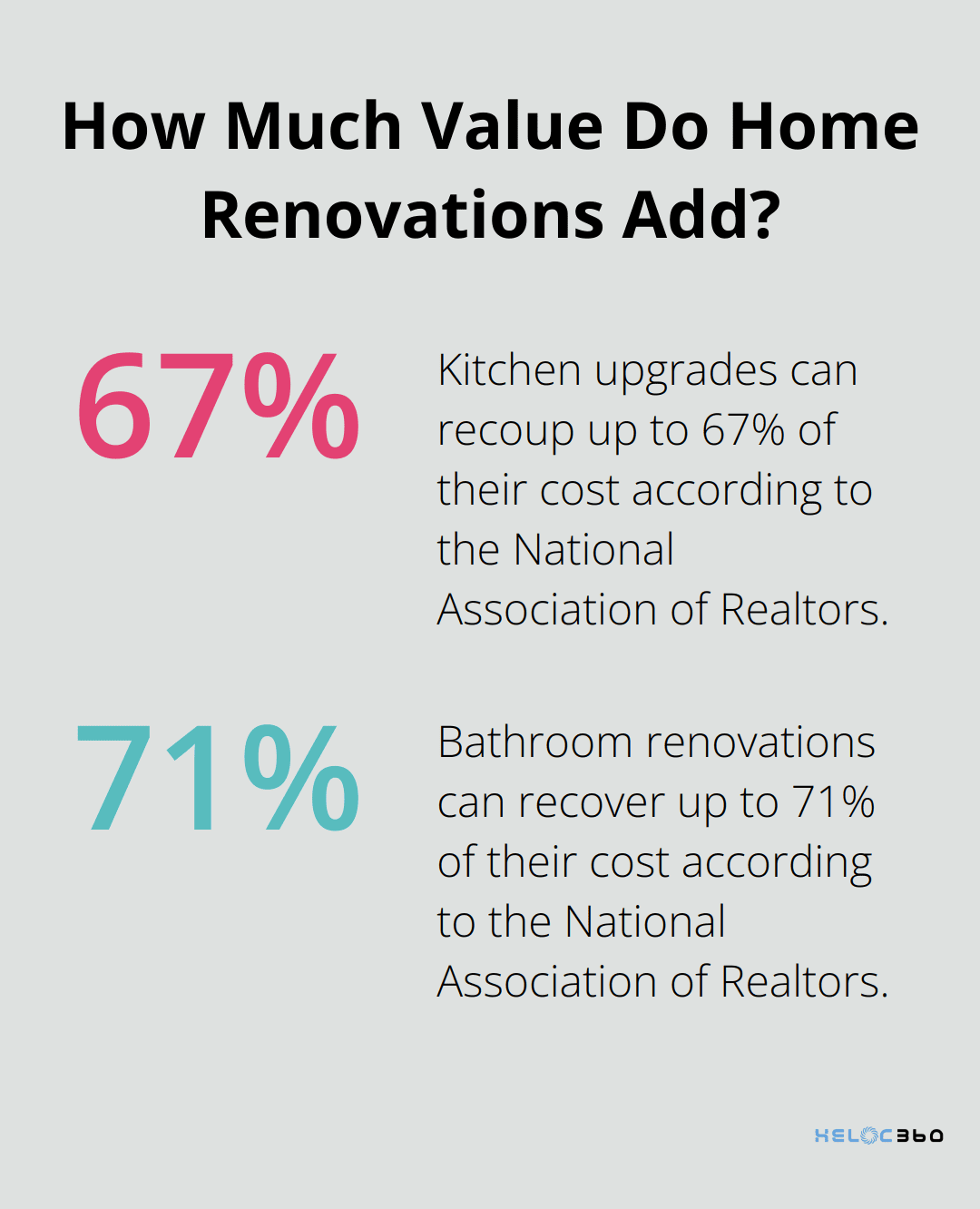- ***PAID ADVERTISEMENT**
- ACHIEVE LOANS – HOME EQUITY EXPERTISE
- FLEXIBLE FINANCING SOLUTIONS
- PERSONALIZED SUPPORT
- RECOMMENDED FICO SCORE: 640+
- COMPETITIVE RATES STREAMLINED APPLICATION PROCESS
Timing is everything when it comes to financial decisions, and HELOC timing is no exception.
At HELOC360, we understand that homeowners often grapple with the question of when to tap into their home equity.
This post will guide you through the key factors to consider when contemplating a Home Equity Line of Credit (HELOC), helping you make an informed choice about whether now is the right time for you to leverage this financial tool.


- Approval in 5 minutes. Funding in as few as 5 days
- Borrow $20K-$400K
- Consolidate debt or finance home projects
- Fastest way to turn home equity into cash
- 100% online application
Is Your Financial Situation HELOC-Ready?
Debt-to-Income Ratio: Your Financial Health Indicator
Your debt-to-income ratio (DTI) is all your monthly debt payments divided by your gross monthly income. This number is one way lenders measure your ability to manage monthly payments and repay debts. Calculate your DTI by dividing your monthly debt payments by your gross monthly income. A high DTI suggests you should focus on reducing existing debts before considering a HELOC.
Home Equity: Your Borrowing Power
Home equity represents the difference between your home’s current market value and your mortgage balance. Most lenders require at least 20 percent equity in your home for HELOC approval, with some allowing 15 percent. To estimate your equity, check your latest mortgage statement and compare it with recent home sales in your area. While online home value estimators provide rough estimates, a professional appraisal offers the most accurate assessment.
Long-Term Financial Goals: HELOC Alignment
Your HELOC should complement your long-term financial strategy. Consider your plans for retirement, education savings, or becoming debt-free. For example, using a HELOC for home improvements that increase your property value could align well with wealth-building goals.
Credit Score: Your Rate Determiner
Your credit score significantly impacts your HELOC interest rate. You’ll typically need a FICO® Score of at least 680 to qualify for a home equity loan. Check your credit report annually (available for free at AnnualCreditReport.com) and address any issues before applying for a HELOC.
Income Stability: Your Repayment Assurance
Lenders want to see a stable income that can support HELOC payments. Self-employed individuals or those with irregular income should prepare to show at least two years of steady earnings. Consider your job security and future earning potential when deciding on HELOC timing.

A thorough assessment of these financial aspects will equip you to decide if a HELOC aligns with your current circumstances and future aspirations. As we move forward, let’s explore the ideal scenarios for using a HELOC and how they might apply to your specific situation.
When Should You Use a HELOC?
A Home Equity Line of Credit (HELOC) can serve as a powerful financial tool when used strategically. This chapter explores ideal scenarios where tapping into your home equity makes sense.
Funding Home Improvements
Home renovations top the list of smart HELOC uses. These projects can increase your property value. Americans spent $420 billion in 2020 on remodeling their homes. A HELOC for these projects can offer a dual benefit: you enjoy an upgraded living space and potentially boost your home’s market value.
Consolidating High-Interest Debt
If you struggle with multiple high-interest debts, a HELOC could offer relief. With average credit card interest rates around 20% in 2025, using a HELOC (with rates of 7-11%) to pay off these balances could save you thousands in interest. However, you must address the root cause of the debt to avoid falling back into the same pattern.
Covering Unexpected Expenses
Life’s unpredictability sometimes brings large expenses when we least expect them. A HELOC can act as a financial safety net. For instance, if you need to replace your home’s HVAC system (which costs an average of $7,000), a HELOC could provide the necessary funds without resorting to high-interest credit cards or depleting your savings.
Investing in Education
The average cost of college tuition ranges from $10,940 for in-state public schools to $39,400 for private colleges in 2025. A HELOC can offer a lower-cost alternative to traditional student loans. However, you should weigh this option carefully against federal student loan programs, which often offer more flexible repayment terms.
Launching or Expanding a Business
For entrepreneurs, a HELOC can provide the capital needed to start or grow a business. The U.S. Small Business Administration offers funding programs to start or grow your business, or to help you recover after a declared disaster. With interest rates typically lower than business loans or credit cards, a HELOC could give your venture the boost it needs.

While these scenarios present opportunities to leverage your home equity, you should approach a HELOC with a clear plan. Try to evaluate your financial situation and long-term goals thoroughly before deciding to use a HELOC. The next chapter will discuss important factors to consider before getting a HELOC, helping you make an informed decision about this financial tool.
Is a HELOC Right for You Now?
The Cost of Borrowing
Interest rates impact the affordability of a Home Equity Line of Credit (HELOC). As of February 2025, HELOC rates are approaching 8%, nearly a two-year low. These rates vary and can change based on market conditions. You must understand how rate changes could affect your monthly payments.

Repayment terms differ among lenders. Most HELOCs have a 10-year draw period where you can borrow funds and only pay interest. The repayment period follows, typically lasting 10 to 20 years, where you pay both principal and interest. Make sure you’re comfortable with these terms before you proceed.
Your Financial Health
Your credit score influences your HELOC approval chances and interest rate. Most lenders require a minimum credit score of 660 to 680 for a home equity loan. Check your credit report for errors and take steps to improve your score if needed before you apply.
Income stability is another factor lenders consider. They want to see that you have a reliable source of income to make HELOC payments. If you’re self-employed or have irregular income, prepare to provide at least two years of tax returns to demonstrate your earning capacity.
The Impact on Your Home
A HELOC uses your home as collateral. If you default on payments, you risk foreclosure. Taking out a HELOC reduces your home equity, which could impact your ability to sell or refinance in the future.
Using a HELOC for home improvements could increase your property value. The National Association of Realtors reports that kitchen upgrades can recoup up to 67% of their cost, while bathroom renovations can recover up to 71%.
Exploring Alternatives
Consider other financing options before you commit to a HELOC. Personal loans don’t require collateral but typically have higher interest rates. Cash-out refinancing might suit you if you want to replace your existing mortgage with a new, larger one.
For education expenses, federal student loans often offer more flexible repayment terms than HELOCs. For business funding, Small Business Administration (SBA) loans provide competitive rates and terms specifically designed for entrepreneurs.
The decision to get a HELOC should stem from a thorough evaluation of your financial situation, goals, and alternatives. If you’re unsure, consult with a financial advisor for personalized guidance tailored to your circumstances.
Final Thoughts
The timing of a HELOC depends on your financial readiness, including your debt-to-income ratio, credit score, and income stability. You must have a clear purpose for the funds, such as home improvements or debt consolidation. The current economic landscape influences HELOC timing, with interest rates at a two-year low in early 2025, making it an attractive option for many homeowners.

Your long-term financial goals should align with your decision to pursue a HELOC. This financial tool can be a powerful asset when used strategically, but it also comes with responsibilities and risks. You must consider the potential impact on your home’s equity and your ability to meet repayment obligations.
We at HELOC360 understand the complexities involved in this decision. Our platform simplifies the process, providing you with the knowledge and tools needed to make an informed choice about leveraging your home equity. HELOC360 connects you with suitable lenders and offers expert guidance to help you navigate the intricacies of home equity borrowing.
Our advise is based on experience in the mortgage industry and we are dedicated to helping you achieve your goal of owning a home. We may receive compensation from partner banks when you view mortgage rates listed on our website.
